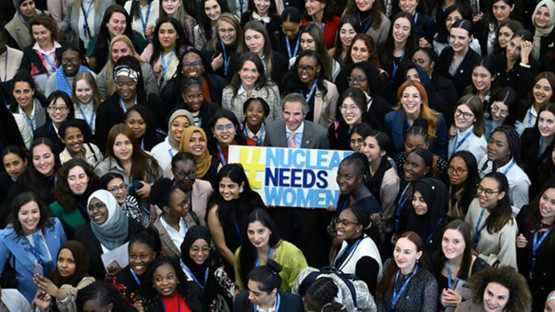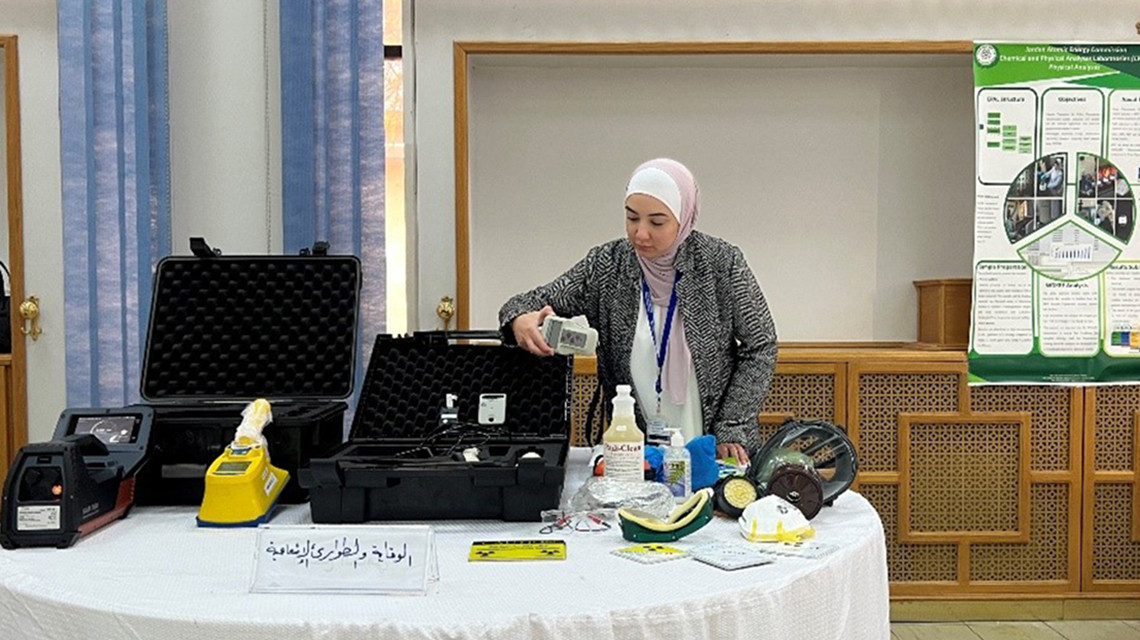The latest application cycle of the IAEA’s flagship programme to bring more women into the nuclear field is now open.
Interested women studying nuclear-related subjects at the master’s degree level are encouraged to apply to the Marie Sklodowska-Curie Fellowship Programme (MSCFP) by 30 September 2024.
The MSCFP, which is named after the pioneering physicist Marie Sklodowska-Curie, was launched by Director General Rafael Mariano Grossi in March 2020 to support women pursuing nuclear-related careers. The MSCFP offers support to women from all IAEA Member States, addressing the need for more gender parity in the nuclear field.
Since its launch, 560 women have been awarded the fellowship from over 120 countries. Awardees are studying a wide range of nuclear topics in more than 70 countries around the world.
Last March, more than 400 MSCFP fellows and Lise Meitner Programme (LMP) participants gathered at IAEA headquarters in Vienna for an IAEA event, entitled For More Women in Nuclear. The event commemorated International Women’s Day and served as a platform for MSCFP fellows and LMP participants to exchange ideas and strengthen their network and leadership skills.
By reducing the financial burden of completing academic studies, the programme helps young women pursue their chosen disciplines without hesitation. The fellows also benefit from networking opportunities at technical events and through the MSCFP Students and Alumnae LinkedIn group.








